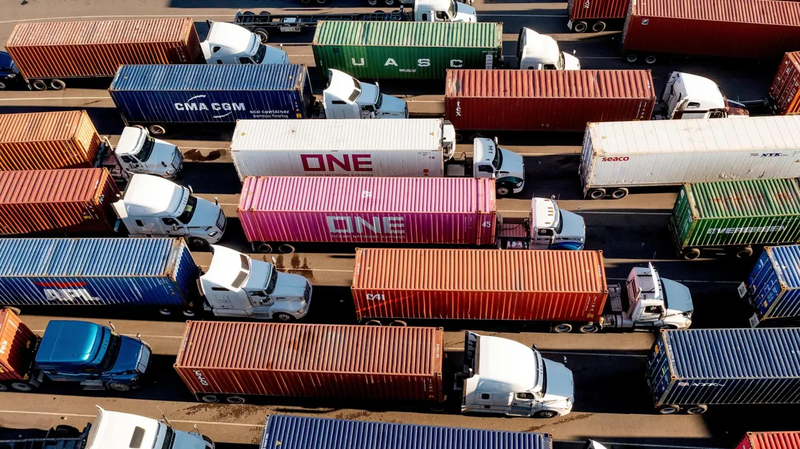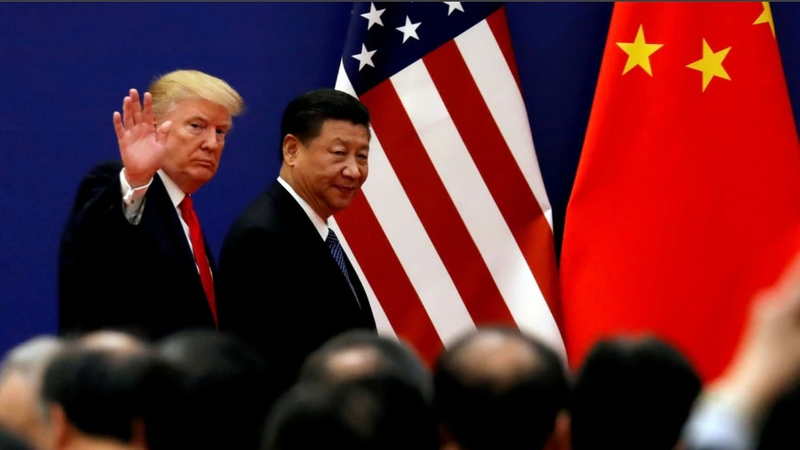Warren Buffett's Warning on Tariffs: Understanding the Economic and Geopolitical Consequences of Trade Wars
Input
Modified
The Impact of Tariffs on U.S. Consumers and Businesses Global Repercussions: How U.S. Tariffs Affect the World Economy The Strategic and Geopolitical Dimensions of Trade Wars

The Impact of Tariffs on U.S. Consumers and Businesses
Warren Buffett, widely regarded as one of the most successful and insightful investors in the world, has never been one to shy away from speaking candidly on global economic issues. His comment that tariffs are “an act of war” should not only catch the attention of market participants but also that of policymakers around the world. In an era where the U.S. has been engaging in escalating trade tensions with China, Buffett’s perspective offers valuable insight into the possible long-term repercussions of trade wars. As countries continue to use tariffs as a negotiating tool, the economic ramifications of such strategies can be both profound and damaging.
To understand the significance of Buffett’s statement, it’s essential to grasp the concept of tariffs and their role in international trade. A tariff is essentially a tax imposed by a government on imported goods. The purpose of tariffs is often to protect domestic industries from foreign competition by making imported goods more expensive, thereby encouraging consumers to buy local alternatives. On the surface, this might seem like a reasonable economic strategy to protect local jobs and businesses.
However, the true cost of tariffs is far more complex. While tariffs might shield specific industries in the short term, they distort market dynamics by artificially increasing the cost of foreign goods, reducing the efficiency of domestic markets, and, ultimately, placing a financial burden on consumers. This imbalance between protectionism and free-market principles creates an economic environment that can slow growth, decrease consumer welfare, and lead to inefficiencies in the global economy.
Buffett’s view on tariffs goes beyond their immediate effects on industries. He sees them as a form of economic aggression. While the U.S. may intend to penalize certain countries for perceived trade imbalances or unfair practices, tariffs risk creating a chain reaction of retaliation, market instability, and, at worst, full-scale trade wars.
Tariffs, as a tool of trade policy, often seem more like a short-term solution to long-term problems. When tariffs are imposed on foreign goods, U.S. consumers face higher prices on products that were previously cheaper to import. This not only limits consumer choice but also reduces the purchasing power of American households. The higher costs of imported goods, especially everyday items such as electronics, clothing, and machinery, add up quickly, leading to an overall rise in the cost of living.
The most direct impact of tariffs is seen in industries that rely heavily on global supply chains. In the case of manufacturing, many U.S. companies depend on imported materials, components, and finished products from countries like China. When tariffs are imposed on these imports, the cost of production rises. This often results in companies passing on these additional costs to consumers. Whether it’s higher prices for cars, electronics, or even food, the impact on American households is felt across various sectors.
But it’s not just the consumer who pays the price. U.S. businesses that rely on exporting their goods to foreign markets face retaliation from trading partners. In particular, China’s response to U.S. tariffs has targeted American agricultural products, such as soybeans, pork, and other staple crops. With China being one of the largest buyers of American farm goods, tariffs on agricultural exports put a severe strain on U.S. farmers. These retaliatory measures contribute to greater instability and uncertainty in an already volatile global trade environment.

Global Repercussions: How U.S. Tariffs Affect the World Economy
While U.S. tariffs have an immediate effect on American consumers and businesses, the broader global impact cannot be ignored. As the world’s largest economy, the United States wields considerable influence on global markets. When the U.S. imposes tariffs on foreign goods, it has a ripple effect that extends far beyond its borders. Countries that are directly targeted by tariffs often respond with their own retaliatory measures, leading to a cycle of escalating trade barriers.
For instance, in the case of the ongoing trade conflict with China, both countries have engaged in a tit-for-tat retaliation that affects industries and economies around the world. China’s countermeasures have included increased tariffs on U.S. agricultural exports, as well as restrictions on other U.S. goods. But this isn’t a one-way street. Countries that are closely tied to global supply chains, like those in the European Union and developing nations, are also affected by disruptions in trade. As tariffs become more widespread, global supply chains break down, and businesses face higher costs for raw materials, components, and finished goods.
The result is a slowdown in global economic growth. As markets become fragmented and trade barriers multiply, countries are less likely to invest in each other’s economies, and international cooperation suffers. Moreover, countries might begin to form competing trade blocs, further dividing the world into isolated economic regions. This fragmentation leads to inefficiencies and lost opportunities for innovation, as countries are forced to rely more on domestic production rather than benefiting from the comparative advantage of international trade.

The Strategic and Geopolitical Dimensions of Trade Wars
Buffett’s assertion that tariffs are “an act of war” carries more weight when we consider the broader geopolitical and strategic implications of trade wars. Trade conflicts are rarely limited to economic disputes. They often serve as proxies for larger geopolitical struggles, particularly between major powers. In the case of the U.S.-China trade war, the tensions are not just about economic imbalances but also about global influence, military power, and technological supremacy.
China’s rise as a global economic and technological power has increasingly put it in competition with the United States. The trade war, therefore, can be seen as part of a larger contest for global dominance. The U.S. seeks to counterbalance China’s growing influence, particularly in areas like artificial intelligence, 5G technology, and other cutting-edge fields. For China, the tariffs imposed by the U.S. are not just a trade issue but also a matter of national sovereignty and economic independence.
These geopolitical tensions create a more dangerous environment for global trade. Trade wars often have unintended consequences, as nations retaliate not only with tariffs but also through non-tariff barriers such as regulatory measures, currency devaluation, and targeted restrictions on industries like technology and energy. The cumulative effect is a more fragmented and less cooperative global economic landscape, which benefits no one in the long run.
As tariffs disrupt global trade, one of the most significant long-term consequences is the reshaping of global supply chains. Companies that once relied on the free flow of goods and services between countries will need to reconsider their supply chain strategies. In many cases, companies will be forced to relocate production or source materials from different regions to avoid tariffs or to mitigate the risks associated with trade disruptions.
This restructuring of global supply chains could lead to higher costs for businesses and consumers, as companies seek alternative suppliers that may be less efficient or more expensive. Furthermore, the growing uncertainty surrounding trade policy may discourage investment in long-term projects or international ventures, as companies may no longer feel confident in the stability of the global trade environment.
As businesses adapt to new supply chain realities, some countries may benefit from the shifts in production, while others may struggle. Countries with lower labor costs or abundant natural resources might see increased investment as businesses look for new places to base their operations. However, for advanced economies like the U.S. and Europe, the rising cost of doing business in a fragmented global economy could stifle growth and innovation.
The future of global trade remains uncertain as tariffs continue to play a central role in the U.S.-China trade conflict. While short-term political gains may be achieved through tariffs, the long-term economic costs are significant. Buffett’s warning that tariffs are "an act of war" underscores the potentially destructive nature of trade wars. As the global economy becomes more interconnected, the repercussions of trade conflicts become more pronounced, affecting not only the countries involved but also the broader international community.
The challenge moving forward will be to strike a balance between protecting domestic industries and promoting free trade. Countries will need to carefully weigh the benefits of tariffs against the long-term costs, including higher prices for consumers, disrupted supply chains, and geopolitical instability. In the end, the ability to manage global trade relations in a way that fosters cooperation, innovation, and growth will determine the future trajectory of the world economy.





















